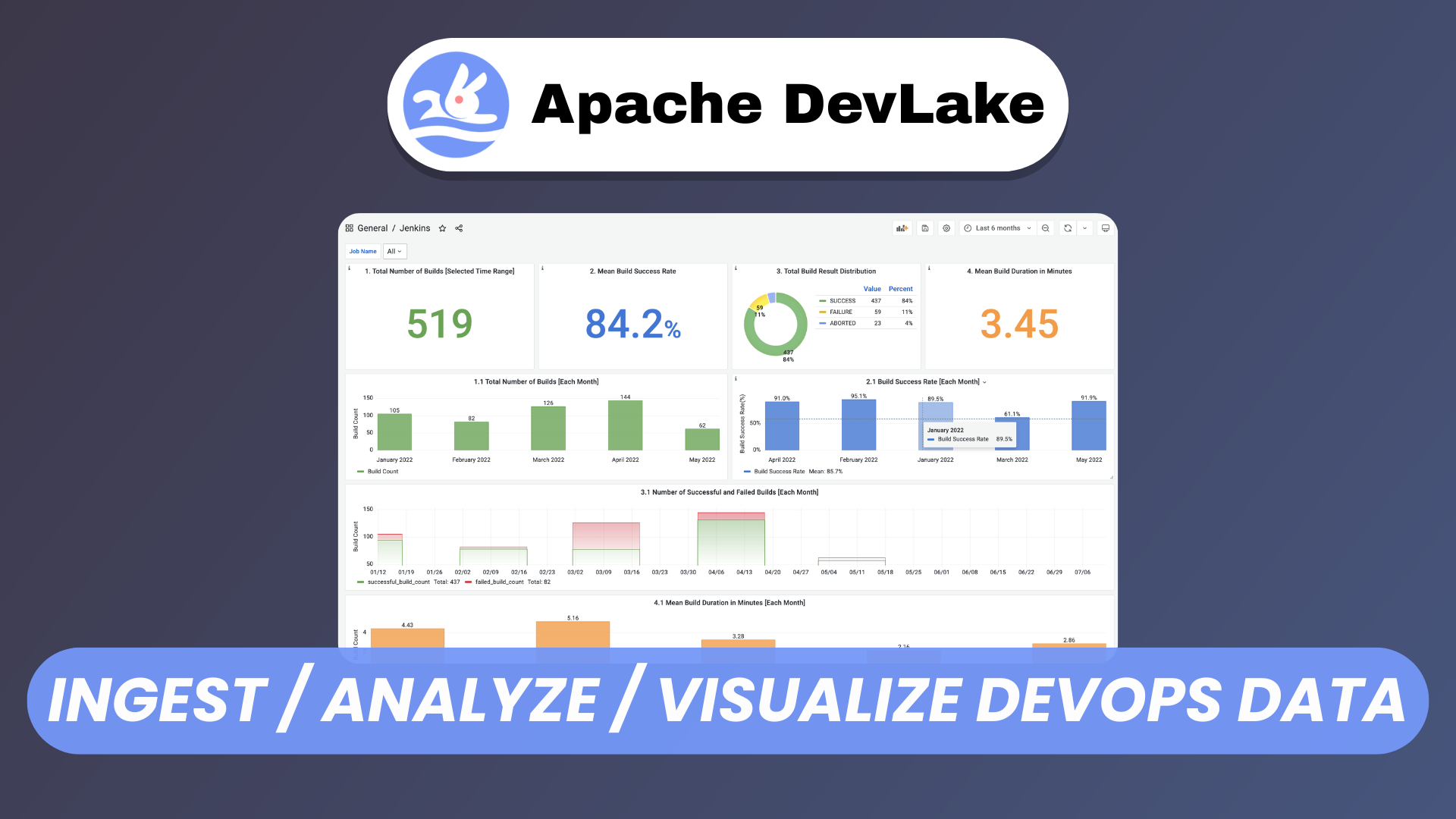DevLake: Free Open Source Tool to Track and Analyze Developer Productivity

In the world of software development, measuring developer productivity can feel like chasing shadows. Traditional KPIs often fall short, leaving teams blind to bottlenecks, inefficiencies, or successes.
Disover DevLake — a free, open-source platform designed to bring clarity and insight into your development process.
Built by the community and backed by open standards, DevLake connects to your existing tools like GitHub, GitLab, Jira, Jenkins, and more, enabling teams to track engineering metrics, visualize data in Grafana, and make data-driven decisions — without compromising on flexibility or control.
In this article, we’ll walk through how to set up DevLake, ingest data from your Git repository, connect to data providers, and visualize everything with stunning dashboards using Grafana.
Watch our platform overview on our YouTube channel
Project Creation with Git Repository
After installing DevLake, the first step is to create a project, which acts as a workspace to track your software development data.
You can create a new project through the DevLake UI:
- Navigate to the DevLake dashboard.
- Click on “Create Project”.
- Assign a name (e.g., “Frontend Team” or “Backend API”).
- Choose the type of data you want to analyze — in this case, select Git as your primary data source.
Once your project is created, link it to a Git repository by providing:
- The repository URL (e.g., from GitHub or GitLab)
- Authentication credentials (like tokens or SSH keys)
- Optional filters such as specific branches or commit date ranges
DevLake will now recognize this Git repository as a source for commit histories, contributor stats, and issue-related activity.
Data Ingestion and Connection Providers
With the project linked to a Git repository, the next step is to set up connection providers — integrations that fetch and normalize data from your development tools.
DevLake supports:
- GitHub/GitLab (commits, pull requests, issues)
- Jira (sprints, epics, stories)
- CI/CD tools like Jenkins or GitHub Actions
- Bitbucket, Azure DevOps, and more
To add a connection:
- Go to the "Connections" tab.
- Choose a provider (e.g., GitHub).
- Fill in your credentials (personal access token, API URL, etc.).
- Test the connection to verify access.
- Assign the connection to your project.
Once set, DevLake will automatically begin ingesting data through scheduled or manual syncs. It parses raw data into a structured format in its internal database (ClickHouse by default), making it easy to analyze and query.
Analyze Data with Grafana Graphs and Charts
Data is only useful when it's visible. That’s where Grafana comes in — an open-source visualization platform that integrates seamlessly with DevLake.
DevLake comes with pre-built Grafana dashboards tailored for engineering insights, including:
- Code commit trends
- Lead time for changes
- Pull request throughput
- Issue resolution rate
- Contributor activity heatmaps
You can:
- Import DevLake dashboards directly into your Grafana instance.
- Use SQL queries to customize panels.
- Set alerts or thresholds for productivity KPIs.
These dashboards empower engineering managers, team leads, and DevOps engineers to monitor workflow health, identify inefficiencies, and improve overall delivery velocity.
Documentation
DevLake’s documentation is comprehensive and developer-friendly. You’ll find:
- Quickstart guides for Docker or Kubernetes
- Detailed walkthroughs for each data connector
- Schema definitions and SQL query examples
- Guides for writing your own custom plugins or metrics
Additionally, DevLake has a thriving GitHub community where you can open issues, request features, or contribute enhancements. The project is part of the Apache Incubator, which means it's backed by solid governance and community standards.
Conclusion
DevLake offers a powerful, flexible, and transparent way to track and analyze developer productivity using the tools your team already relies on. Whether you’re a startup trying to optimize engineering throughput or an enterprise aiming for better delivery metrics, DevLake gives you the insights to act — all while staying open-source and self-hosted.
It’s time to stop guessing and start measuring.
Try DevLake today and transform your developer operations into a data-driven powerhouse.

